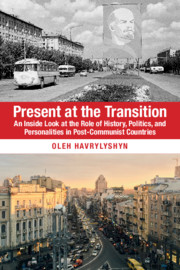 Present at the Transition
Present at the Transition Pervasive, Persistent, and Pernicious
from Part III - Domestic Vested Interests and Reforms
Published online by Cambridge University Press: 04 May 2020
Pervasive corruption at all levels of society was a common feature for the majority of countries from the start of transition and persists to the present day in many. It is not unique to transition; it is widespread in many developing and some developed countries, and was commonplace in the communist period. However, the same divergence seen in the degree of reform and socioeconomic performance applies to corruption. Most in Central Europe and the Baltics experienced significant reductions in socialist corruption soon after reforms began in 1990, and this improvement continues, with a few like Estonia and Slovenia nearly equalling the best of advanced countries. It is not a mere coincidence that the least corrupt were the most reformed and had the highest degree of democracy. Southeast Europe lagged behind, but even there considerable improvements have taken place, probably under pressure of EU requirements for membership accession. The worst levels persist in the former USSR with the heroic exception of Georgia since its Rose Revolution. It seems that formal political “programs” to combat corruption, even with foreign involvement, are far less effective than a committed effort to complete economic democratic and Rule-of-Law reforms.
To save this book to your Kindle, first ensure no-reply@cambridge.org is added to your Approved Personal Document E-mail List under your Personal Document Settings on the Manage Your Content and Devices page of your Amazon account. Then enter the ‘name’ part of your Kindle email address below. Find out more about saving to your Kindle.
Note you can select to save to either the @free.kindle.com or @kindle.com variations. ‘@free.kindle.com’ emails are free but can only be saved to your device when it is connected to wi-fi. ‘@kindle.com’ emails can be delivered even when you are not connected to wi-fi, but note that service fees apply.
Find out more about the Kindle Personal Document Service.
To save content items to your account, please confirm that you agree to abide by our usage policies. If this is the first time you use this feature, you will be asked to authorise Cambridge Core to connect with your account. Find out more about saving content to Dropbox.
To save content items to your account, please confirm that you agree to abide by our usage policies. If this is the first time you use this feature, you will be asked to authorise Cambridge Core to connect with your account. Find out more about saving content to Google Drive.